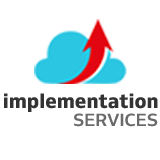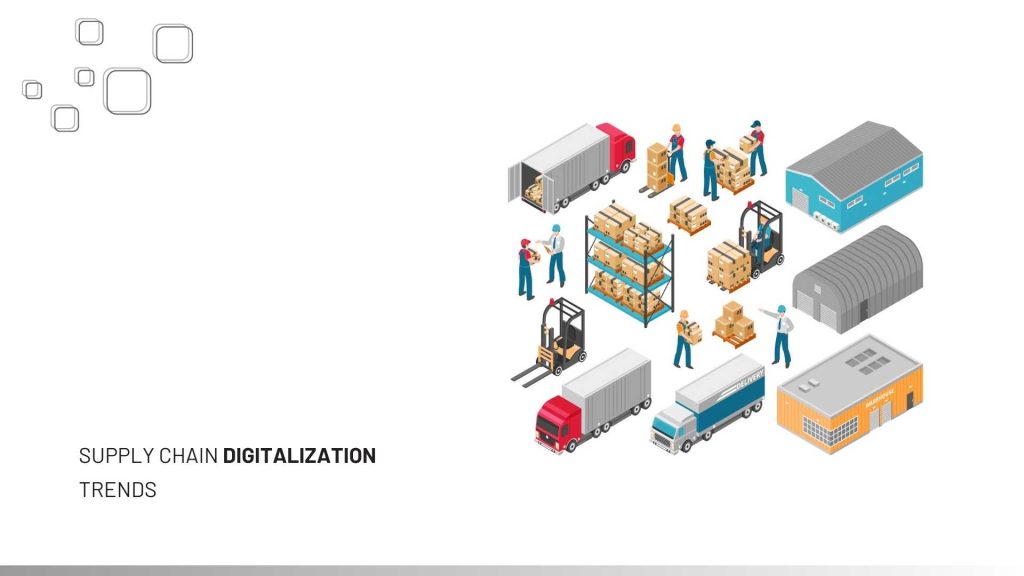In an era where technology is evolving exceptionally, the supply chain industry is transforming significantly through digitalization. As we enter 2024, the landscape is ripe with innovative technologies that promise to revolutionize how businesses manage their supply chains. We’ll explore the key supply chain digitalization trends shaping the industry and discuss how companies can enhance these improvements to gain a competitive edge.
Blockchain Integration for Enhanced Transparency:
Blockchain tech continues to attain traction in the supply chain, offering unparalleled transparency and traceability. By implementing blockchain, businesses can create an unalterable ledger of transactions, ensuring that every step in the supply chain is documented and can be verified.
It minimizes the risk of fraud and establishes trust among stakeholders. In 2024, we expect to see an increased adoption of blockchain solutions to optimize supply chain visibility and reduce inefficiencies.
AI and Machine Learning (ML) for Predictive Analytics:
AI and ML are becoming integral components of supply chain management, enabling organizations to make more informed decisions through predictive analytics. These technologies analyze historical data, identify patterns, and forecast future trends, helping businesses optimize inventory management, demand forecasting, and production planning.
In 2024, AI and ML will continue to evolve, offering even more sophisticated predictive capabilities that drive efficiency and cost savings across the supply chain.
Internet of Things (IoT) for Real-Time Monitoring:
The Internet of Things is altering the supply chain by delivering real-time visibility into the movement of goods. IoT devices like sensors and RFID tags allow businesses to monitor product condition, location, and status throughout the supply chain journey.
This real-time data enables quick response to issues, reduces the risk of product spoilage, and enhances overall supply chain agility. As we move forward, integrating more advanced IoT technologies will become a standard practice for supply chain optimization.
Robotic Process Automation (RPA) for Streamlined Operations:
Robotic Process Automation automates routine tasks within the supply chain, freeing human resources to focus on more strategic activities. In 2024, we expect an increased adoption of RPA for order processing, inventory management, and other repetitive tasks.
Robots and autonomous vehicles in warehouses are also likely to rise, enhancing operational efficiency and reducing manual errors.
Cloud-Based Supply Chain Platforms:
Cloud technology continues to be a game-changer for supply chain management. Cloud-based platforms offer scalability, flexibility, and accessibility, allowing businesses to streamline their operations across geographies.
In 2024, we expect an increased migration towards cloud-based supply chain solutions, enabling collaboration. Data sharing, and real-time communication among all stakeholders.
Cloud ERP for SMBs
For SMBs in the realm of supply chain management, implementing an ERP system is a game-changer. ERP solutions tailored for SMBs streamline and centralize various aspects of supply chain operations, offering a unified platform for inventory management, order processing, and logistics coordination.
These systems enable real-time visibility into key metrics, fostering data-driven decision-making and efficient resource allocation. ERP solutions for SMBs often come with scalable features, allowing businesses to adapt and grow without significant infrastructure investments.
By integrating ERP into their supply chain processes. SMBs can enhance operational efficiency, reduce costs, and position themselves for sustained growth in a growing market.
Conclusion:
Acumatica ERP stands out as a transformative solution that can significantly enhance businesses. With its comprehensive suite of tools, Acumatica streamlines and optimizes supply chain processes. Offering real-time visibility, advanced analytics, and seamless integration across the entire supply chain ecosystem.
By leveraging Acumatica ERP, businesses can make informed decisions, enhance stakeholder collaboration, and respond swiftly to market changes. The platform’s scalability, flexibility, and cloud-based architecture position it as a strategic ally for companies seeking to stay competitive and resilient in the ever-evolving supply chain management landscape.

Vijay comes with a vast experience in ERP and enterprise solutions space with about 20 years of experience in various packaged application like Acumatica, SAP, Orion, Salesforce.com, SugarCRM and, SalesLogix.
















